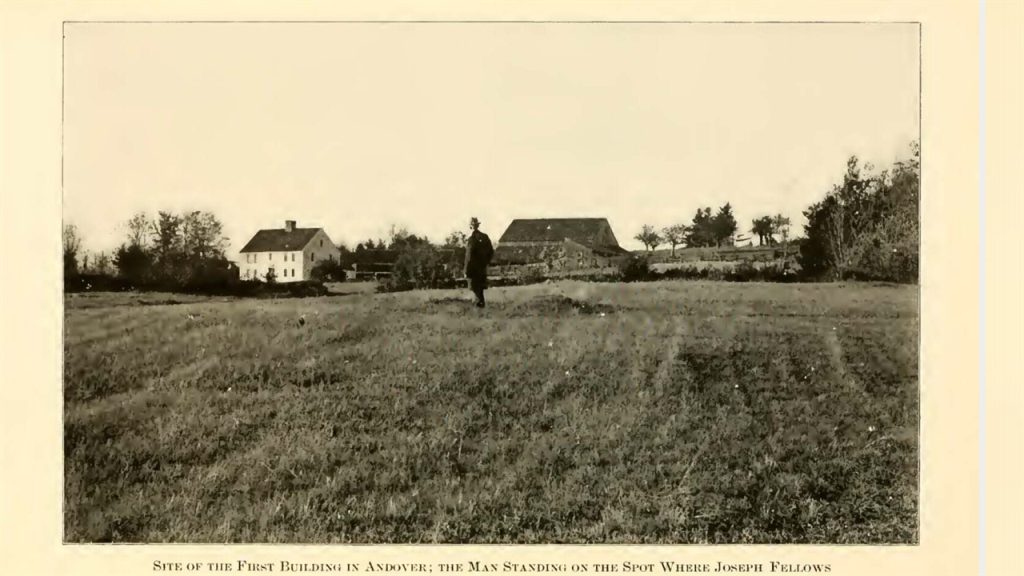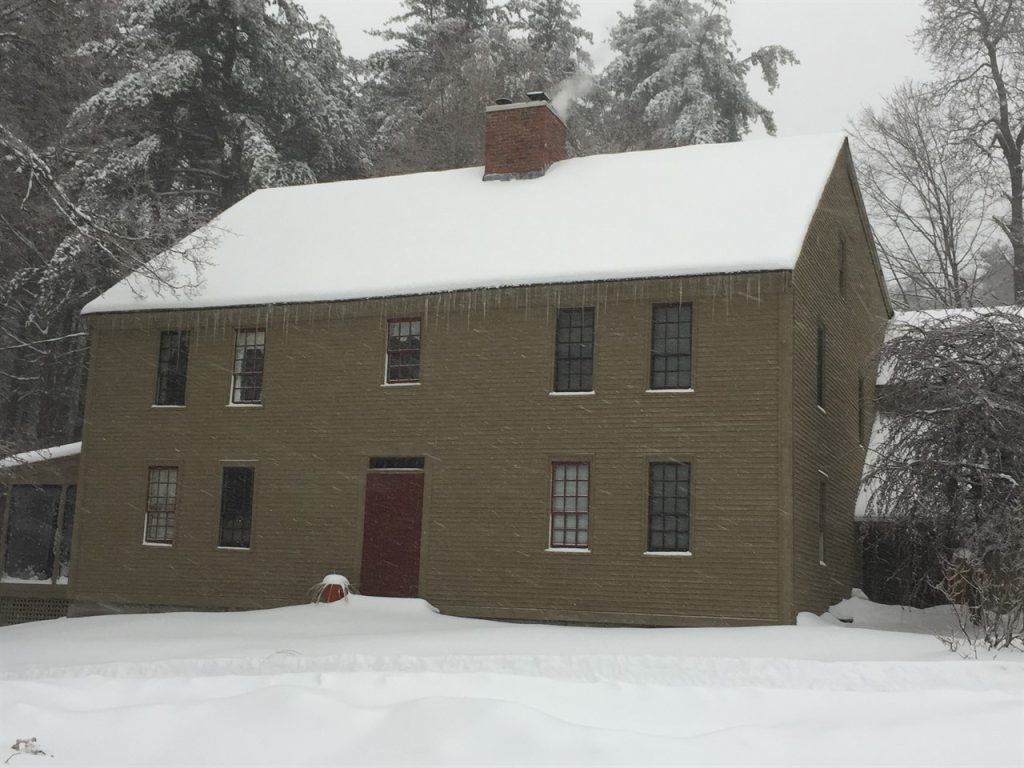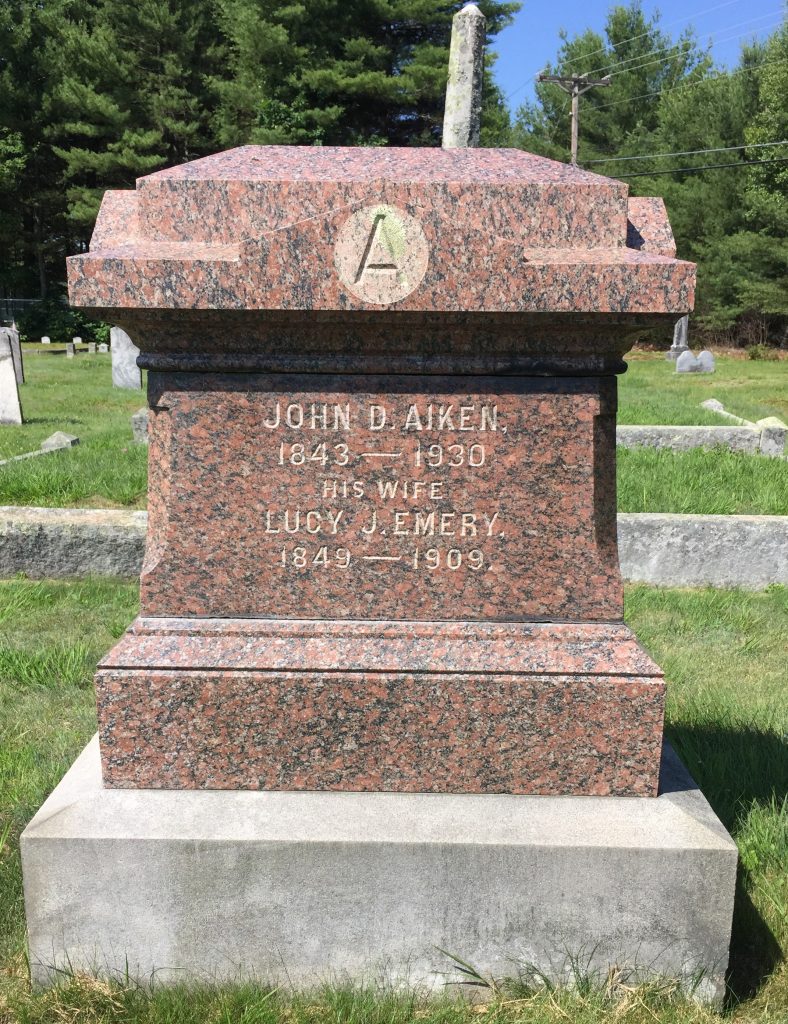
Ralph Chaffee, in his book “East Andover and Its People Fifty Years Ago and Today,” includes a history of one of Andover’s very earliest settlers, Captain William Emery in 1764-65. His settlement has become known as the William B. Emery place at 363 Chase Hill Road (formerly known as Emery Road). Chaffee stated that William B. Emery put a restriction in his will that the property could never be transferred out of the Emery family. This was not really the fact.

It was actually William B. Emery’s daughter, Lucy Jane Aiken (wife of John D. Aiken), who established the restriction on ownership of the Emery homestead farm to direct descendants of William B. Emery. She had acquired the farm at a public auction held in 1900 to liquidate her father’s estate, as directed by his will. His will placed no restrictions on any subsequent disposition of the real estate.
At her death in 1909, Lucy Jane Aiken bequeathed the farm to the three children of her niece Nellie Augusta Kidder (all of them of Tilton), the sole living descendants, along with their mother, of William B. Emery. In a touching attempt to preserve family ownership of the homestead farm that had been in the family continuously for four generations, she stipulated in her bequest that
“The aforementioned children of Nellie A. Kidder and their descendants forever are to have and to hold the aforementioned real estate upon the condition that it shall not pass out of their ownership and possession so long as any of the said children or any of their descendants are living, my intentions and desire being that the real estate described in lines 2 and 3 should be retained and possessed by direct descendants of the late William B. Emery of Andover so long as any of his descendants are still living.”
This attempt was doomed to failure, as sketched by Ralph Chaffee. The Town of Andover and the descendants eventually implemented a plan to circumvent the restrictions established by the bequest.
In 1928 the descendants, then living in Laconia, sold off all of the standing softwood timber on the property, allowing a period of five years for its removal. At the end of that period, the Town took the farm for unpaid taxes and immediately transferred it back to one of the descendants with an unrestricted title. This allowed him to sell it, out of the family, to a Mrs. Sarah C. Woodley from Cleveland, Ohio.
